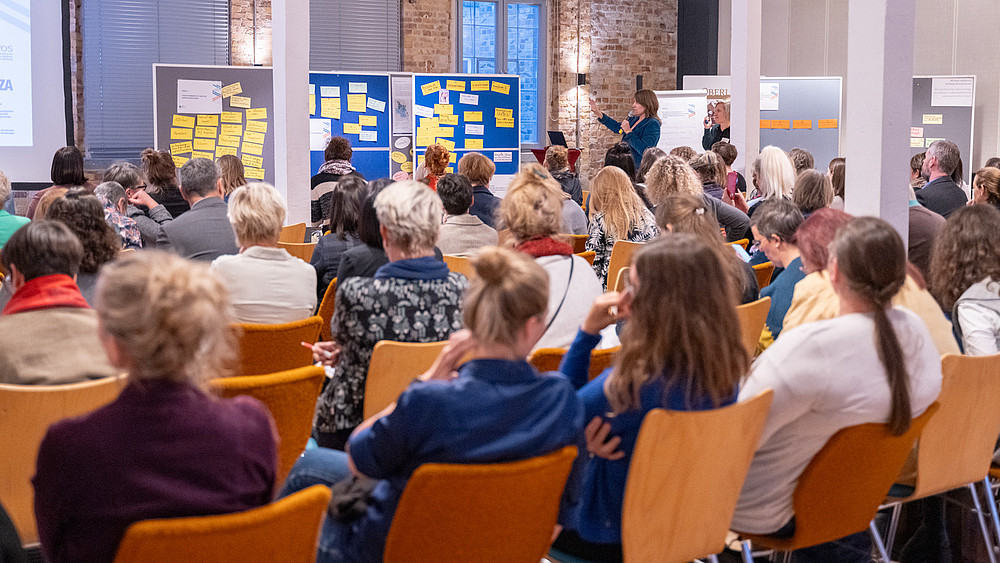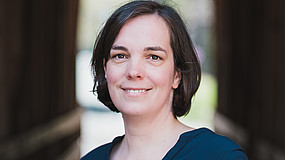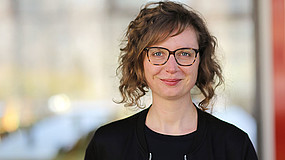Report on the 2nd StrukturWANDEL Conference on October 2, 2024

Many active people in Lusatia's structural change are committed to gender equality. Some talk about it, others simply do it. And still others turn away as soon as gender equality is mentioned in public.
The 2nd strukturWANDEL conference focused on people who point out that gender equality is not a "women's problem", but a concern for society as a whole and must be shaped: So that even more people can participate in the change in Lusatia, feel comfortable in Lusatia and co-determination is not a question of gender.
The 2nd strukturWANDEL conference closed the gap between knowledge about the unequal consequences of structural change processes and the ability to act. It was an important step towards interlinking all forces and contributed to the visibility of actors and topics. It saw itself as a contribution to "mutual knowledge" and as a call for alliance and networking. It followed the intention that solidarity and the exchange of experiences lead to the goal.
Almost 140 participants focused on the current development of gender equality aspects in structural change in Lusatia and possible solutions for outstanding needs and challenges. For example, data and facts were compiled that provide indications from both a regional and national perspective as to which factors have an influence on positive development and how the structural change measures taken so far are having an effect. Several panels also examined the question of how equality can be implemented in practice in companies, administrative structures and other areas and why both generational conflicts and European networking offer opportunities.
The 2nd structural CHANGE conference was implemented by the Lusatia Equality Alliance! The Alliance for Equality is an association of women from Saxony and Brandenburg who see Lusatia, which is divided into two federal states, as one region and are proactively involved in shaping structural change in Lusatia. It consists of groups of people who have hardly been visible or able to actively participate in existing formats and structures.
The initiative for the alliance came from the municipal equal opportunities officers in Lusatia. Over 10 municipal equal opportunities officers have created an interface between equality and structural change. They are taking a proactive stance and have been working together with the State Equal Opportunities Officer from Brandenburg, supported by the TRAWOS Institute at Zittau/Görlitz University of Applied Sciences, to promote gender-equitable structural change at various levels since 2020. They are continuously gaining support at state, federal and EU level. In addition to the Lusatia representatives, the Alliance for Gender Equality works with long-standing and new partners in science, business, trade unions and civil society and develops standards for cooperation.
The alliance wants participation and transparency in structural change. It wants more women to sit and speak on committees and panels. Women should be given the opportunity to do so. It wants to point out that the dynamics of inequality in structural change are at the expense of women and place their creative intentions in the foreground.
Conclusion: Gender equality is a joint task for the federal government, federal states, local authorities and civil society. More than ever, municipal gender equality work needs the backing of the EU, the federal government and the federal states. The commitment at municipal level shows how important and determined we are to achieve gender equality in structural change and thus advance the socio-ecological transformation in a gender-equitable way.
More information will follow!

